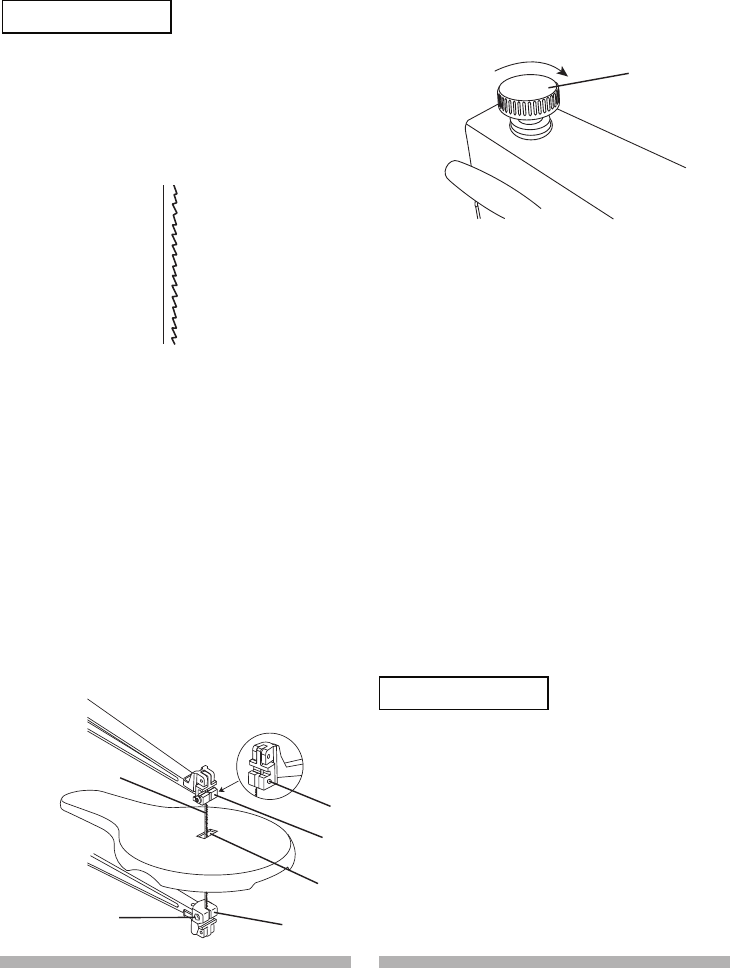
20 21
20 21
3. Tighten the tension on the blade by
turning the tension knob clockwise
(Fig. K). If the tension is too tight,
turn counterclockwise. If too loose,
turn the knob clockwise.
Fig. K
PLAIN-END BLADE REMOVAL AND
INSTALLATION
This scroll saw accepts 5-inch plain-
end or pin-end blades to cut a wide
variety of materials.
Plain-end type blades are
recommended whenever fine, accurate
and intricate work is being performed
on 3/4 in. or thinner material. It will take
slightly longer to assemble and tension
the blade, but you will also be able to
use finer blades for cutting a thinner
kerf.
To a
void injury from accidental
starting, always turn the switch OFF
and remove power cord plug from
power source before removing or
replacing the blade.
PIN-END BLADE INSTALLATION
(FIG. I, J, K)
NOTE: Do not tighten the set screw (1,
2) when using Pin-end blades. (Fig. J)
In order to avoid uncontrollable
lifting of the workpiece, the teeth
of the blade MUST ALWAYS point
downward. (Fig. I)
Fig. I
1. Install the blade (3) by inserting one
end of it through the access hole (4)
of throat plate in the table. Hook the
lower blade pin in the pin recess in
the lower blade holder (5) and then
the upper blade pin in the upper
blade holder (6). (Fig. J)
2. Check to see that the pins are
properly located in the upper (6) and
the lower (5) blade holders. (Fig. J)
Fig. J
1
6
3
4
5
2
7
WARNING
!
WARNING
!


















